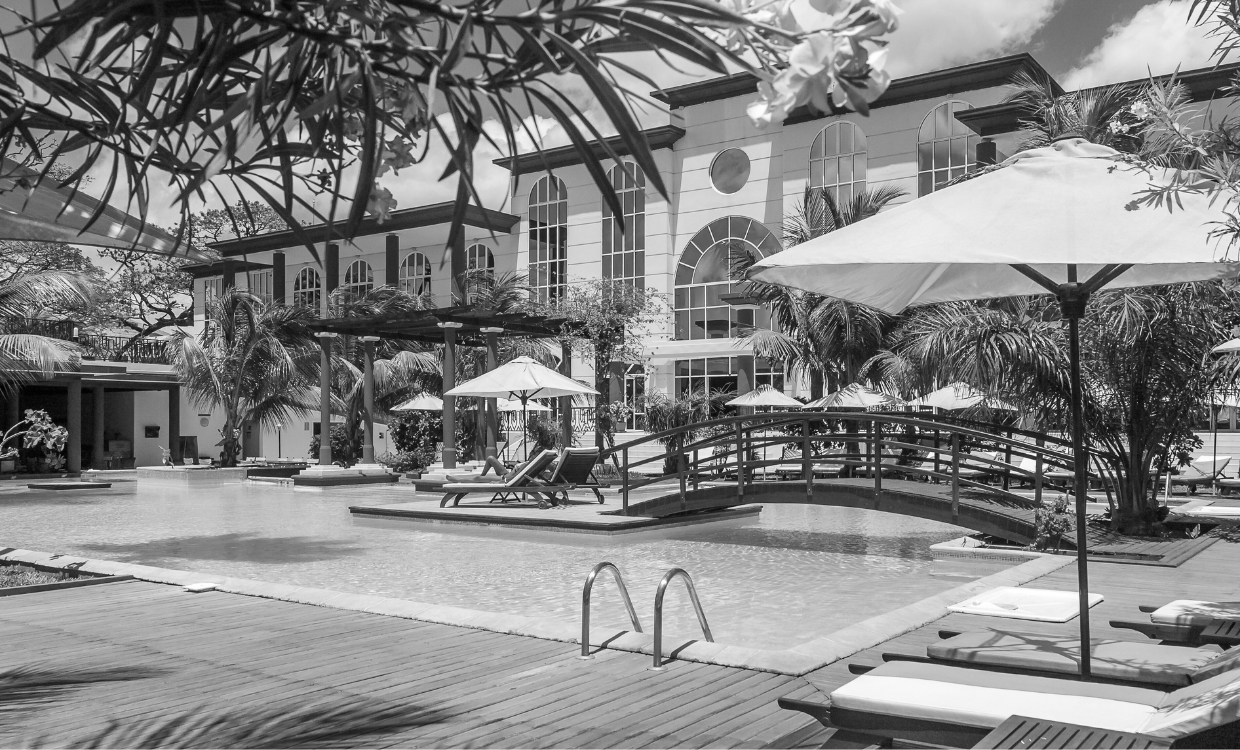The most profitable hotel franchises of 2026

The hotel franchise sector has never been stronger. The hotel franchise business is a popular and structured business model within the hospitality industry, offering investors a clear path to ownership and growth. As the post-pandemic recovery matures into a sophisticated market, smart investors are discovering exceptional opportunities in hospitality franchises. Whether you’re exploring a hotel franchise for the first time or looking to expand your investment portfolio, 2026 presents a compelling landscape for those who understand which brands deliver consistent returns.
The hospitality franchise sector has evolved far beyond simple property ownership, especially within the broader hospitality industry where hotel franchises operate. Today’s most profitable hotel franchises combine powerful brand recognition with cutting-edge technology, comprehensive guest loyalty programs, and sophisticated operational support systems. For investors, this creates opportunities to participate in a proven business model that generates multiple revenue streams while benefiting from established operational frameworks.
What makes this particularly exciting is that innovative investment platforms like FranShares have democratized access to franchise hotel opportunities, allowing hotel owners and investors to participate in professionally managed properties starting with investments as low as $500. This means the substantial returns traditionally available only to institutional investors are now accessible to a much broader range of people.
In this comprehensive guide, we explore:
- What defines the best hotel franchise opportunities in today’s market
- Why hotel franchises remain compelling investment vehicles
- The five most profitable hotel franchises dominating 2026
- How hotel franchise costs vary across different segments
- Passive investment strategies that remove operational barriers
Hotel Franchise Opportunities: What Drives Success in 2026
The landscape for hotel franchise opportunities has become increasingly sophisticated, with clear winners emerging based on specific operational and strategic advantages. Hotel franchising is a business model where independent hotel owners operate under the umbrella of an established hotel brand, gaining access to key benefits such as increased visibility, operational support, and revenue growth. Selecting the right hotel brand is crucial for maximizing guest attraction and long-term success. Understanding these success factors, including franchisee benefits like marketing support, staff training, and loyalty programs, helps investors identify which hospitality franchises will deliver superior returns.
Brand Recognition and Loyalty Program Strength
The most profitable hotel franchises leverage massive customer loyalty programs that create predictable revenue streams. Affiliation with a well known brand in the hotel franchise sector is highly valuable, as it enhances brand recognition, builds guest trust, and attracts more travelers. Marriott Bonvoy leads the sector with 228 million members, while Hilton Honors has grown rapidly to 210 million members, representing guaranteed future bookings that reduce marketing costs and improve occupancy rates.
Loyalty program members, who are often loyal customers, typically generate higher revenue per stay and book directly with hotels rather than through expensive third-party websites, improving profit margins by 15-25% compared to properties that rely heavily on online travel agencies. These loyal customers are a key driver of direct bookings and long-term revenue growth for hotel franchises.
Technology Integration That Enhances Profitability
Leading hotel franchises now deploy artificial intelligence and automation as fundamental profit drivers. The most successful properties implement AI-powered revenue management systems that optimize pricing in real-time, contactless guest services that reduce labor costs, and integrated property management systems that streamline operations.
These technological investments directly impact the bottom line. Properties with advanced technology systems typically achieve 15-20% higher profit margins compared to traditional operations, making technology integration a critical factor when evaluating a franchise hotel opportunity. In addition, integrated marketing tools provided by franchise systems help franchisees maintain brand consistency and support their marketing efforts.
Operational Support and Franchise Infrastructure
The best hospitality franchises provide comprehensive support systems that enable franchise owners to achieve superior operational efficiency. This includes advanced training programs, sophisticated marketing support, ongoing operational support as a critical component of franchise infrastructure, bulk purchasing power that reduces supply costs, and ongoing operational guidance.
Franchises with robust support systems help owners achieve operational break-even faster while maintaining higher profit margins throughout economic cycles. This support becomes even more valuable in today’s environment where operational complexity continues to increase.
Strategic Market Positioning
Forward-thinking hotel franchises focus on market segments that demonstrate resilience and growth potential. The extended-stay hotel market is expected to reach $62.8 billion in 2025 and grow to around $143.2 billion by 2035, with an estimated CAGR of 8.6%, as these properties maintain significantly higher average occupancy rates compared to traditional hotels. When evaluating franchise opportunities, considering extended stays is crucial for aligning hotel services with guest preferences, such as long-term or short-term accommodations. Many hotel franchises strategically target both business and leisure travelers to maximize market reach and appeal to a broader customer base.
Premium-economy brands capture underserved market segments with attractive unit economics. The key is identifying hotel franchises that have positioned themselves in segments with strong demand drivers and favorable operational characteristics.
Hotel Franchises: Investment Benefits That Matter
Hotel franchise ownership offers distinct advantages that make it an attractive addition to diversified investment portfolios, particularly when accessed through modern investment platforms that remove traditional barriers.
Franchise hotels, unlike independent hotels, provide standardized brand experiences and operational support, ensuring consistency for guests and greater stability for investors.
Multiple Revenue Stream Diversification
Modern hotel franchises generate income far beyond traditional room revenue. Successful properties derive 35-45% of total revenue from sources including food and beverage operations, meeting and event services, co-working spaces, and innovative ancillary services. Affiliation with a hotel group can provide access to additional revenue-generating opportunities and support systems, helping franchisees implement and manage these diverse income streams.
The emerging concept of “hotel retailing” allows properties to monetize everything from early check-in privileges to premium amenities, creating dozens of additional profit centers. This diversification provides stability even when core room demand fluctuates.
Inflation Protection Through Dynamic Pricing
Hotel properties serve as effective inflation hedges due to their ability to adjust pricing dynamically in response to market conditions. Unlike fixed-income investments, successful hotel franchises can increase rates to offset rising operational costs, particularly properties with strong brand loyalty and market positions.
Supply-Constrained Market Environment
The current environment features historically low new hotel supply growth, creating favorable conditions for existing properties. The strongest brand family posted a 2.1% RevPAR CAGR from 2014 to 2024, while performance gaps between brands have widened, making brand selection more critical to profitability. Limited new competition allows well-positioned hotels to capture demand growth and maintain pricing power.
Accessible Investment Through Innovation
Traditional hotel franchise ownership requiring millions in capital has been transformed by fractional ownership platforms. FranShares and similar platforms enable individual investors to participate in professionally managed hotel franchises with significantly lower minimum investments, providing exposure to institutional-quality assets previously accessible only to wealthy individuals and institutions.
Most Profitable Hotel Franchises: 2026 Market Leaders
The hotel franchise sector’s leaders have distinguished themselves through exceptional operational performance, strategic innovation, and proven ability to generate consistent returns for franchise owners. Here’s our analysis of the five franchises demonstrating superior financial metrics and growth trajectories in 2025.
Hilton: Innovation-Driven Hotel Franchise Leadership
Hilton maintains its position as a global hospitality leader through strategic portfolio expansion and technological innovation across 24 distinct brands. Hilton’s multi brand strategies enable the company to target diverse market segments, from budget to luxury, by owning multiple distinct hotel brands within its portfolio. The company’s diversified approach provides investors multiple entry points while leveraging shared systems and brand equity.
Key Performance Indicators: Hilton opened 186 hotels totaling 20,100 rooms in Q1 2025, resulting in 14,000 net room additions and 7.2% net unit growth year-over-year. The development pipeline reached a record 503,400 rooms as of March 31, 2025. In Q2 2025, Hilton added 26,100 rooms, bringing its pipeline to a record 510,600 rooms across 3,636 hotels. Notably, Hilton Garden Inn stands out as a key brand in Hilton’s portfolio, recognized for its innovation and guest satisfaction. Despite economic headwinds, system-wide comparable RevPAR increased 2.5% in Q1 2025, demonstrating resilience.
Investment Requirements:
- Start-up cost: $29 million to $112 million (varies by brand and market)
- Franchise fee: $75,000 to $105,000
- Ongoing fees: 5% gross room revenue royalty plus 4% marketing fee
Strategic Competitive Advantages: Hilton’s luxury and lifestyle portfolio grew to more than 1,000 hotels globally, while Spark by Hilton specifically targets the premium-economy segment with over 100 properties since launch. The Hilton Honors loyalty program has 210 million members and is growing rapidly, providing direct booking advantages that significantly improve franchise profitability. The company’s extended-stay offerings through Home2 Suites continue expanding, with over 700 open hotels and more than 750 in development—the largest pipeline among all chains.
Marriott International: Global Scale and Market Dominance
Marriott, as the parent company overseeing a diverse portfolio of hotel brands, operates the world’s largest hotel portfolio with over 30 brands serving every market segment. The company’s strength lies in its unparalleled global distribution network, industry-leading loyalty program, and sophisticated revenue management capabilities.
Key Performance Indicators: Marriott’s portfolio includes nearly 9,500 properties with approximately 1.72 million rooms globally. In Q1 2025, the company reported 4.1% year-over-year global RevPAR growth, with 3.3% growth in the U.S. and Canada and 5.9% in international markets. Marriott added about 12,200 net rooms in Q1, including more than 7,300 internationally.
Investment Requirements:
- Start-up cost: $32 million to $107 million (varies significantly by brand)
- Franchise fee: $50,000 to $100,000
- Ongoing fees: 5-6% gross room revenue royalty plus 2-5% marketing fee
Strategic Competitive Advantages: Marriott Bonvoy leads the hotel loyalty program sector with 228 million members, creating a massive advantage in direct bookings and guest retention. Marriott’s 2025 initiatives include the global launch of “Series by Marriott,” enabling established regional brands to join the Marriott system with reduced property improvement requirements. The company introduced StudioRes, a new economy extended-stay brand, with the first property opening in June 2025. The company’s diversified portfolio allows franchisees to access everything from economy to luxury segments under one franchisor relationship.
IHG Hotels & Resorts: Strategic Growth and Market Expansion
IHG operates a portfolio spanning economy to luxury segments with brands including Holiday Inn, Crowne Plaza, and InterContinental. IHG is a major player in the full service hotels segment, offering properties with comprehensive amenities and services under several of its franchise brands. The company’s strength lies in its flexible franchising model and strong performance in key markets.
Key Performance Indicators: IHG posted 3.3% global RevPAR growth in Q1 2025, led by 3.5% growth in the Americas. The Europe, Middle East, Asia & Africa region saw a 5% RevPAR gain. IHG signed more than 25,000 rooms in the quarter and completed $324 million of its planned $900 million share buyback for 2025.
Investment Requirements:
- Start-up cost: $67 million to $98 million (full-service properties)
- Start-up cost: $3 million to $14 million (select-service brands)
- Franchise fee: $50,000 to $100,000
- Ongoing fees: 5% gross room revenue royalty plus 2.5-3% marketing fee
Strategic Competitive Advantages: IHG added 42 hotels or 4,500 rooms to its Americas pipeline in Q1 2025, including 18 extended-stay properties. The company’s growing midscale conversion brand, Garner, now has 59 open and pipeline hotels. IHG One Rewards provides members with meaningful benefits and the company’s conversion-friendly approach makes it attractive for existing independent hotels seeking brand affiliation.
Wyndham Hotels & Resorts: Scale and Value Positioning
As the world’s largest hotel franchise company by property count, Wyndham serves value-conscious travelers through brands including Days Inn, La Quinta, Ramada, and Super 8. The company’s strength lies in its operational expertise in economy and midscale segments, appealing to both business and leisure travelers seeking reliable, midscale accommodations at competitive prices.
Key Performance Indicators: Wyndham opened a record 15,000 rooms globally in Q1 2025, up 13% year-over-year. The company signed 181 new development contracts globally, with the pipeline reaching a record 254,000 rooms across 2,143 hotels. In Q2 2025, Wyndham reported 5% growth in adjusted EBITDA and 11% increase in adjusted diluted EPS.
Investment Requirements:
- Start-up cost: $1 million to $10 million (varies widely by brand)
- Franchise fee: $15,000 to $50,000
- Ongoing fees: 4-6% gross room revenue royalty plus 2-4% marketing fee
Strategic Competitive Advantages: Wyndham’s scale provides significant purchasing power and distribution advantages. The company’s ECHO Suites extended-stay brand is officially the fastest-growing 100% new construction extended-stay brand. Wyndham Rewards serves 110 million members and is ranked as the world’s most generous rewards program. The company’s focus on secondary markets and value segments positions it well to capture trade-down demand during economic uncertainty.
Choice Hotels International: Extended-Stay Excellence
Choice Hotels operates 22 brands focusing primarily on economy and midscale segments, with particular strength in the extended-stay category. The company’s strategic focus on high-growth segments and operational efficiency creates compelling franchise opportunities. Extended Stay America is a leading competitor in the extended-stay hotel segment, known for its focus on long-term guests and business travelers.
Key Performance Indicators: Choice reported 2.3% domestic RevPAR growth in Q1 2025, outperforming its competitive chain scales by 60 basis points. The domestic extended-stay portfolio performed exceptionally well with 6.8% RevPAR growth, outperforming the industry by 410 basis points. Global net rooms rose 2.8%, with 3.9% growth in upscale, extended-stay, and midscale segments. Choice’s domestic extended-stay pipeline exceeded 40,000 rooms, and the company opened its 500th extended-stay property in October 2024.
Investment Requirements:
- Start-up cost: $3 million to $18 million (midscale/extended-stay)
- Start-up cost: $88,000 to $13 million (economy segment)
- Franchise fee: $25,000 to $75,000
- Ongoing fees: 4.5-5.5% gross room revenue royalty plus 2-3.5% marketing fee
Strategic Competitive Advantages: Choice Hotels’ extended-stay portfolio, including WoodSpring Suites and Everhome Suites, benefits from sustained demand with a pipeline exceeding 40,000 rooms. The Ascend Hotel Collection provides conversion opportunities for independent properties, while Choice Privileges loyalty program serves over 70 million members. The company’s recent acquisitions and strategic lending partnerships demonstrate commitment to extended-stay growth.
Hotel Franchise Costs: Understanding Investment Requirements
Hotel franchise cost varies dramatically based on segment, brand, location, and whether the project involves new construction or conversion of existing properties. A franchise agreement is a formal legal contract that outlines the relationship, responsibilities, and standards between the franchisor and franchisee. Franchise agreements define the rights, responsibilities, and operational standards for hotel franchise ownership, ensuring both parties understand their obligations. Understanding these cost structures helps investors identify opportunities that match their capital availability and return expectations, and franchise agreements typically specify the duration and renewal terms of the franchise relationship.
Cost Breakdown by Segment
Economy Segment ($500,000 – $4 million):
- Lower initial investment requirements
- Simplified operations and staffing
- Attractive for first-time franchisees
- Strong cash flow characteristics
Midscale/Extended-Stay ($3 million – $18 million):
- Moderate capital requirements
- Enhanced amenities and services
- Longer guest stays improve stability
- Extended-stay properties benefit from the sector’s 8.6% CAGR growth projection through 2035
Upscale ($15 million – $50 million):
- Significant capital investment
- Full-service amenities and food/beverage operations
- Higher revenue potential per room
- Requires sophisticated operational expertise
Luxury ($50 million – $200 million):
- Substantial capital requirements
- Premium positioning and service standards
- Highest revenue per available room potential
- Often requires additional resort/spa amenities
All costs exclude land acquisition and vary significantly by market conditions and specific brand requirements. Segment selection and cost structure play a crucial role in a hotel’s performance and can directly impact return on investment.
Ongoing Fee Structure
Most hotel franchises charge:
- Royalty fees: 5-6% of gross room revenue
- Marketing/loyalty fees: 2-4% of gross room revenue
- Technology fees: monthly charges per room for technology services and infrastructure
- Additional fees: Technology, reservation system access, training programs
Conversion vs. New Construction
Conversion Opportunities: Focus on conversion opportunities in secondary markets where construction costs make new builds challenging. Converting existing properties typically requires:
- Lower total investment compared to ground-up development
- Faster time to market and revenue generation
- Property improvement plans to meet brand standards
- Potential for immediate revenue continuation during renovation
New Construction:
- Higher upfront investment but purpose-built to brand standards
- No legacy operational or structural issues
- Optimized for current market preferences and operational efficiency
- Longer development timeline before revenue generation
Small Hotel Franchise Opportunities: Accessible Entry Points
For investors and hotel owners interested in entering the hospitality franchise sector without massive capital commitments, several pathways exist:
Economy Conversion Brands
Approximately 70% of all hotels in the United States are franchised properties, and conversion-friendly brands offer the most accessible entry points. For an independent hotel, these conversion brands provide an opportunity to join a franchise system and gain access to brand support, distribution, and loyalty programs. These brands typically require:
- Existing hotel properties meeting basic quality standards
- Modest renovation investments ($50,000 – $500,000)
- Quick flag conversion timelines (60-120 days)
- Immediate access to brand distribution and loyalty programs
Extended-Stay Focus
The extended-stay segment represented about 20% of all lodging demand but only 10% of supply in 2025, creating favorable supply-demand dynamics. Extended-stay hotels achieved 76% occupancy rates with room nights available rising 3% year-over-year. The segment’s advantages include:
- Lower operating costs due to reduced housekeeping frequency
- Higher profit margins from extended guest stays
- Resilient demand from business travelers and relocating professionals
- The segment is estimated to generate around $20 billion in revenue in 2025
Boutique and Soft Brands
Several major franchisors offer “soft brand” or collection concepts that allow independent hotels to maintain unique characteristics while accessing corporate distribution systems. These options provide:
- Greater operational flexibility than traditional franchises
- Preservation of property’s distinctive character
- Access to loyalty programs and reservation systems
- Lower upfront property improvement requirements
Passive Investment Strategies: Franchise Hotel Access Without Operations
For investors seeking hotel franchise exposure without operational responsibilities, fractional ownership platforms offer compelling alternatives to traditional direct ownership.
The FranShares Advantage
FranShares enables investors to participate in professionally managed hotel franchises with significantly lower capital requirements and reduced risk through:
Investment Accessibility:
- Minimum investments starting at $500
- Access to institutional-quality hotel assets
- Participation in multiple properties for diversification
- No operational responsibilities or direct management
Professional Management:
- Experienced operators handle all property operations
- Strategic site selection based on market analysis
- Ongoing performance optimization
- Regular reporting and transparency
Portfolio Diversification:
Geographic Diversification: Spread investment across multiple markets to reduce local economic risk while capturing regional growth opportunities.
Brand Diversification: Participate in different franchise systems to benefit from varied market positioning and operational approaches.
Segment Diversification: Access both economy and upscale segments to optimize risk-adjusted returns across market cycles.
Professional Oversight: Benefit from experienced operators’ expertise in site selection, development, and ongoing management without requiring personal involvement.
Key Takeaways for Hotel Franchise Investors
The hotel franchise sector in 2026 offers compelling opportunities for investors who understand market dynamics and select partners strategically. Success requires recognizing that the industry has evolved into a sophisticated business requiring operational excellence, technology integration, and strong brand alignment.
Critical Success Factors
Brand Strength and Market Position: The market increasingly rewards brands with strong positioning. The spread between top- and bottom-performing luxury brands widened to nearly 7 percentage points between 2019 and 2024, resulting in a 41% cumulative RevPAR premium for the strongest brands. Properties with weak brand affiliation or unclear market positioning face the greatest challenges.
Operational Excellence: Rising costs and increased guest expectations make operational efficiency essential. Hotel franchises providing robust support systems and proven operational models offer significant advantages to franchise owners.
Technology Integration: Properties lacking modern technology infrastructure struggle to compete effectively. AI-powered systems, contactless services, and integrated management platforms have become essential rather than optional.
Investment Strategy Recommendations
For Direct Investors: Focus on conversion opportunities in secondary markets where construction costs make new builds challenging. Extended-stay and premium-economy segments offer attractive risk-adjusted returns in the current environment.
For Passive Investors: Consider fractional ownership platforms like FranShares that provide professional management and diversification benefits without operational responsibilities. These platforms offer access to institutional-quality investments with lower minimums and reduced risk exposure.
Market Timing Considerations: The current supply-constrained environment favors existing properties, with historically low new hotel supply growth creating favorable conditions. Economic conditions create potential opportunities for well-positioned investors who can identify undervalued assets.
Looking Forward
The hotel franchise market surpassed $36.7 billion in 2023 and is projected to grow at a 7.5% CAGR from 2024 to 2032. The number of lodging franchise establishments in the United States reached 35,850 in 2023, with forecasts projecting growth to 36,173 in 2024.
The most profitable hotel franchises of 2025 distinguish themselves through comprehensive technology integration, strong brand loyalty programs, and operational excellence that generates consistent returns across market cycles. Whether through direct ownership or innovative platforms like FranShares, hotel franchise opportunities offer compelling prospects for portfolio diversification and potential passive income generation.
To explore current hotel franchise investment opportunities and learn more about passive investing through FranShares, sign up for our platform on our home page and discover how you can participate in this dynamic and profitable sector.
Explore More Profitable Franchise Opportunities
If you’re considering expanding your business horizons, read on to learn about the most profitable franchise opportunities in each industry. Whether you’re a budding entrepreneur or a seasoned veteran in the franchise world, our curated selection will guide you toward making an informed decision.
- The Most Profitable Home Service Franchises of 2024
- The Most Profitable Retail Franchises of 2024
- The Most Profitable Childcare Franchises of 2024
- The Most Profitable Pizza Franchises of 2026
- The Most Profitable Franchises of 2024
- Top Automotive Franchises 2026: Your Complete Guide to Auto Repair Shop Franchise Opportunities


